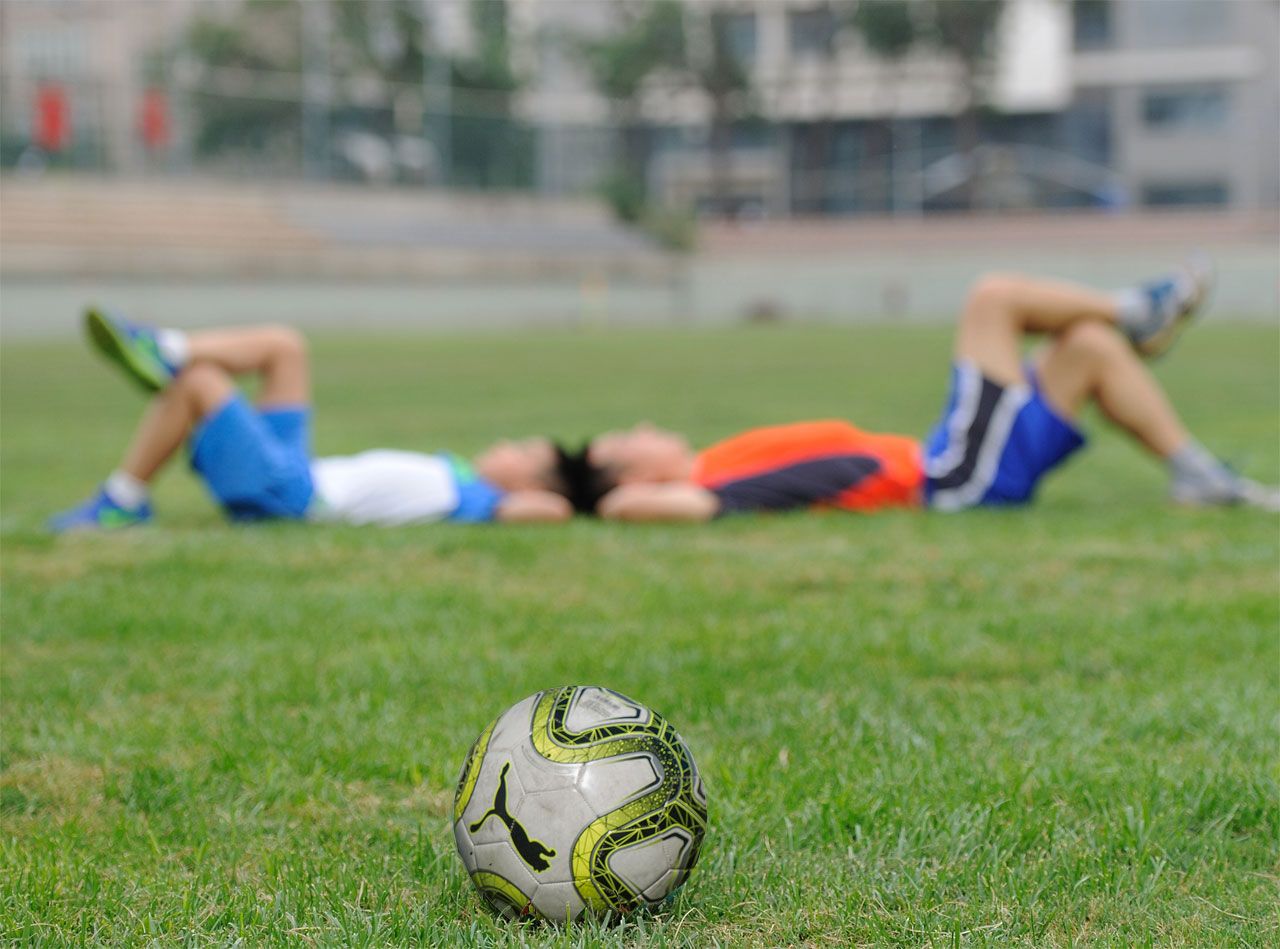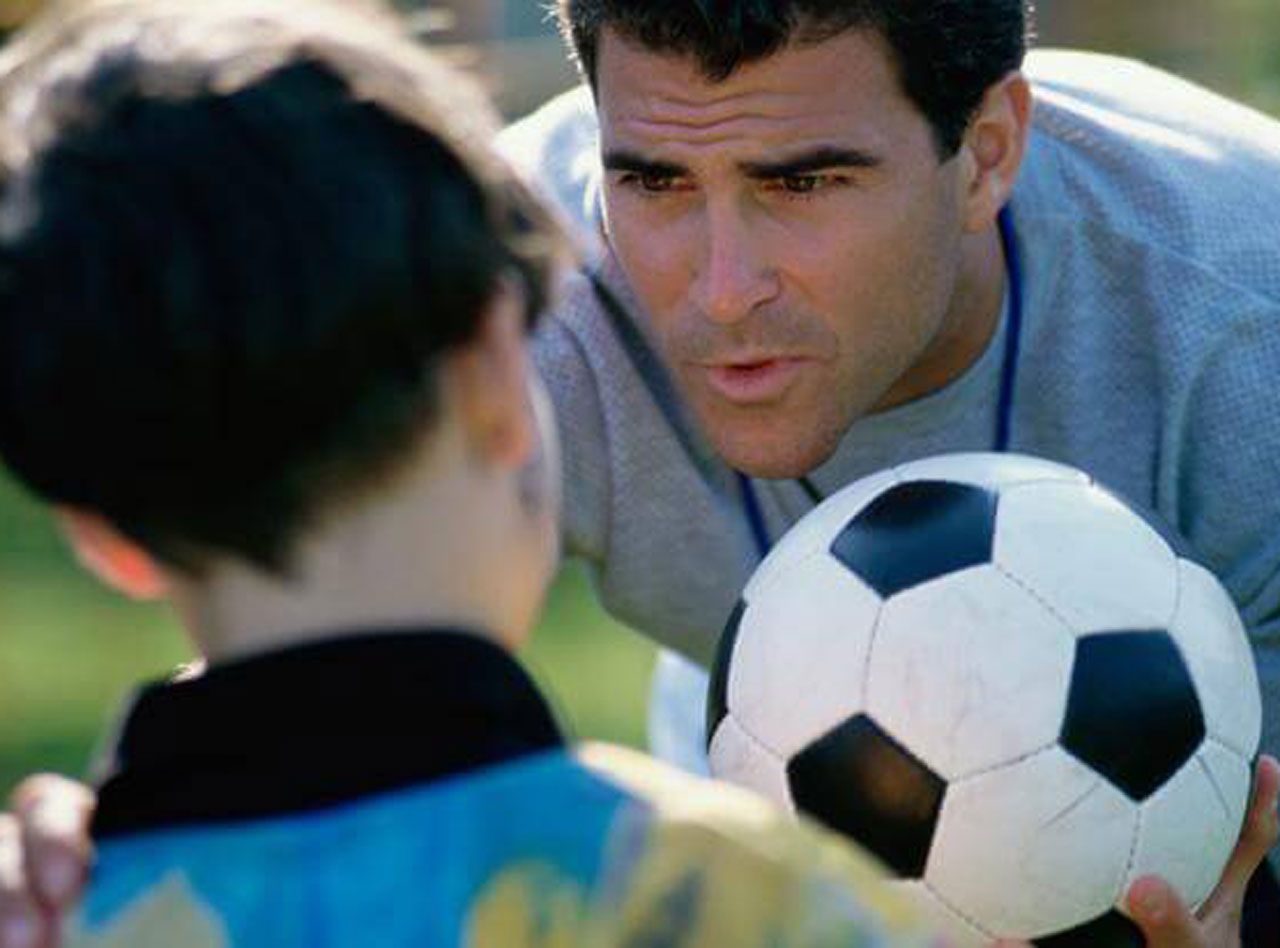There are a lot of questions that we face as sport’s professionals and especially in soccer. In occasions, we face technical aspects, sports or methodological, but today we want to throw in the air a theme that we have been living with for years and that it starts to be somewhat worrisome.
Today’s reflexion is center on attitudes that we should avoid facing the sport that a son or daughter practices. It is fine that we want our small ones to do sports, but we should think that they are still children and before they compete they must learn some values and they should enjoy what they are doing. So…
How does the anti-sport attitude of the parents affect their children?
When it comes to children’s sports, you can be either a sports parent or an unsportsmanlike parent. We often make mistakes as parents, including adopting the wrong attitude towards our child’s sport.
The sport should always be a choice for the children, not a parents’ choice. And the parents, at the same time, should understand which should be their attitude and behavior in the sport that your child chooses. We will explain what attitude should be avoided towards your child’s sport because it does not do him any good, instead it harms him.
Which attitude should you avoid towards your child’s sport?
We live in a society where the overprotection prevails. The parents of today think that your son is the best, that should always play in the best teams and categories, that the coach does not have enough knowledge to train your child, that he should win because he deserves to… and we forget that in reality, the children are in the process of maturing and must face victories, failure, frustration… to understand that in life, the goals are reached with effort and many failed attempts. “To fall is permitted, but getting up is obligatory”
The parents should avoid above all, these type of attitudes and behaviors that far from benefiting their child, it harms him much more. Identifying parents types:
- Frustrated Father: Is the typical father that pressures their son to perform a specific sport because in reality he likes it or in his childhood, he would have liked to practice it in a professional way and could not do so. These are parents that project the frustration on their sons, frustration that they carried since childhood and now they pressure their son so much that they can provoke a rejection from the child towards that sport.
- Coaching father: Is the type of father that is constantly saying to his son what he has to do, although, it is contradictory to what the coach says. This does not do more than provoke a tremendous confusion in the child, that at the end sees himself pressured in two different directions and does not know who to pay attention to, the father or his coach.
- Aggressive father: The sport is in itself a school of values, and the moment of competition, the best “board” or scenery to show what we have learned. Also, we know that the example of the parents is essential. This way, when a father behaves in an aggressive or violent way in a game or competition, he is “saying” to his son that it is an acceptable behavior. “We are what our parents taught us when they did nothing” (Umberto Eco). Meaning, that we copy the examples that we see on our parents without them noticing.
How can a sport better the childhood self-esteem?
The sport shows our children to better themselves, not surpass others. As a matter of fact, humility should be an essential attitude of the sportsman. In such a way, that if a child knows that he is very good at a sport, explain to him that he can say it, but when no one listens. The satisfaction should be personal. When a child does something well, he feels good. And his self-esteem improves.
What you should not do to hinder your child’s self-esteem:
- Pressure your child and demand a goal too high, because he will not be able to do it and he will sink.
- Or when he does not do something well and you say to your son that he has done it wrong, he will also sink.
What you should do to improve his self-esteem:
- Value his effort, congratulate his effort, so that he believes in himself.
- Value any small accomplishment.
Do not value the results, but your son’s effort. In fact, always value much more the goal met after a great effort. This is equal to self-esteem.
In stages of formation, the education in values it must be the fundamental pillar for the motor and personal development of the child, taking into account the hedonistic objective inherent in the game, the child should be trained from an early age in all the structures that compose them, so that the socio-affective or the emotive-volutive form a base as or more important like the one he can. Thus, do we want to be an example that helps our little ones to form correctly? Or do we want to become that paternal figure that conditions his/her children and does not let them overcome stages by themselves?
Dad, you decide!


